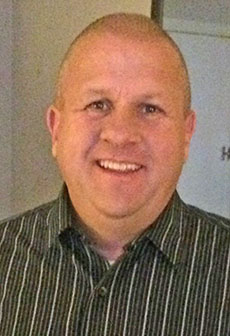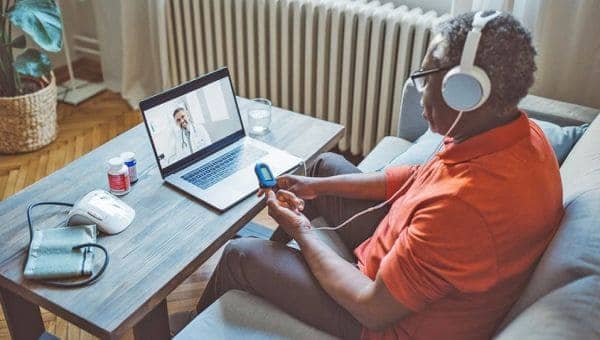As a veteran-owned company we’re pleased to report that the VA’s use of telehealth is proving to be a life-saving tool for Veterans in need of care. The Wilmington VA’s Remote Patient Monitoring – Home Telehealth (RPM – HT) program is helping to monitor Veterans’ vital signs and health status, and provide health education. Recently, the team successfully intervened to help a Veteran in need, who was having difficulty breathing and had abnormal vital signs. The Veteran was immediately advised to seek emergency care and was thankful for the assistance. Telehealth is proving to be a “godsend” for Veterans in need of care.
Read the encouraging story below:
Telehealth is “a godsend” for a Veteran in need
Care coordinator immediately advised Veteran to seek emergency care
Staff members at Wilmington VA used telehealth to help a Veteran in need of care. The Wilmington VA uses the Remote Patient Monitoring – Home Telehealth (RPM – HT) program to monitor Veterans’ vital signs and health status and provide health education. Veterans enrolled in the RPM – HT program send key vital signs and other health information to their care team who can monitor the data and intervene if something seems wrong.
The Wilmington RPM – HT team also has regular check-ins with Veterans using VA Video Connect, VA’s secure videoconferencing tool. During these video visits, the care team can review the Veterans’ vital signs with them and assess their condition.
Recently, the team successfully intervened to assist a Veteran in need. The Veteran had a history of heart failure and depended on home oxygen. He has been enrolled in the RPM – HT program for over a year to monitor his vital signs and his condition had been stable for some time.

Kenneth Horseman
Something was wrong
In December 2022, Lead Care Coordinator Kenneth Horseman, RPM – HT, noticed something was wrong. The Veteran’s blood oxygen and heart rate measures from that day were both abnormal.
Horseman scheduled a Video Connect visit that day to check on the Veteran. During the video visit, he quickly noticed the Veteran was not himself. He was short of breath, had difficulty speaking in complete sentences and appeared pale and pasty. When he checked the Veteran’s vital signs remotely, Horseman saw that his blood oxygen was lower than normal and his heart rate was higher than normal.
Horseman immediately advised him to seek emergency care and the Veteran’s brother drove him to the hospital. When Horseman followed up with the Veteran the next day, he was still in the ICU but in much better condition.
“Home Telehealth has been a godsend to me.”
“I could tell the difference talking to him from his hospital room. He was in less distress. He was very thankful for the assistance and for my follow-up call. He is thankful for his VA Health Care team and all we do,” Horseman said.
The Veteran declined to be identified by name for this article, but said, “Home Telehealth has been a godsend to me. I value the nurses’ input and opinion on my many medical problems. And it’s so convenient because I can’t easily get into a doctor’s office when I need care or an opinion.”
Learn more about VA Video Connect and RPM – HT.
Source: The VA https://news.va.gov/115719/telehealth-is-a-godsend-for-a-veteran-in-need




